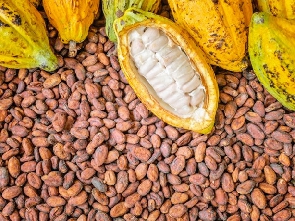A tax incentive announced in 2016 to enable cocoa grinders to build capital and expand capacity has been stopped by Ivory Coast as it moves to meet revenue goals under an International Monetary Fund program, dealing a blow to foreign companies that make up the majority of domestic processing.
Exporters had to pay higher excise taxes for overseas sales of beans. The duty for processing the commodity locally into cocoa products or chocolate itself was lower at between 13.2% and zero percent. That has recently ended and the government now requires all companies in the cocoa value chain to pay the full 14.6% tax, according to people familiar with the matter.
The decision will impact the amount of cash available to companies that grind cocoa beans locally, such as Cargill Inc., Olam International Ltd. and Barry Callebaut AG, to invest in their plants. It’s not yet clear how the rollback of the incentive will affect the top grower’s latest projection of boosting its grinding capacity to about 1.4 million tons by 2028 from 972,040 tons in 2022.
Minister of Finance and Budget Adama Coulibaly did not answer phone calls and a text message seeking comment.
The rise in grindings in Ivory Coast — the world’s largest grinder — has drawn share away from more established markets like Europe and North America. It’s also added to a trend of commodity producers — from Vietnam in coffee to Indonesia in palm — seeking to benefit from a bigger portion of the supply chain by processing crops locally.
The choice to ask companies to pay the full applicable tax rate was necessitated by the country’s terms of agreement for an IMF loan program which seeks to end some subsidies and tax exemptions to increase government revenue, the people said.
Ivory Coast agreed to a $3.5 billion extended fund facility and extended credit facility with the IMF in May. Upfront domestic revenue mobilization is a central pillar of the program, seen to help the country increase tax revenue by 0.6% of gross domestic product to 14.5% of GDP in 2024, IMF said in a staff note this month.
Business News of Thursday, 21 December 2023
Source: bloomberg.com
Ivory Coast stops cocoa grinding tax incentive to meet IMF goal
Entertainment












